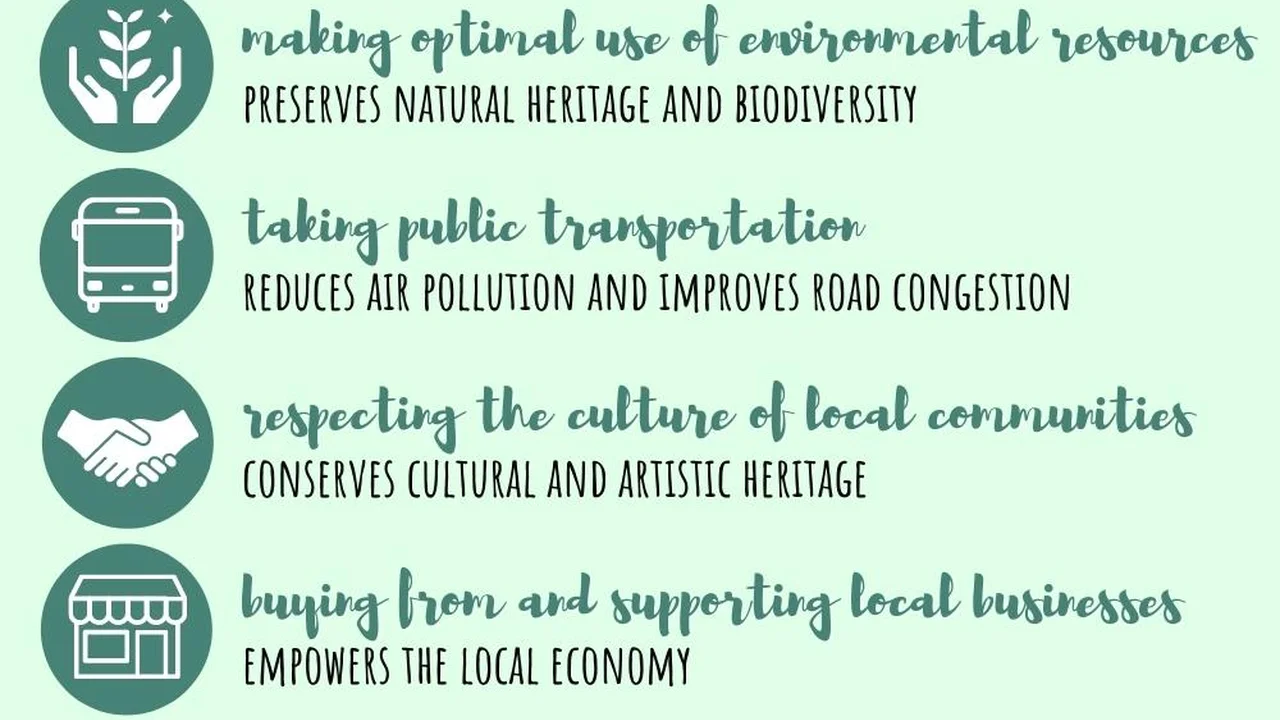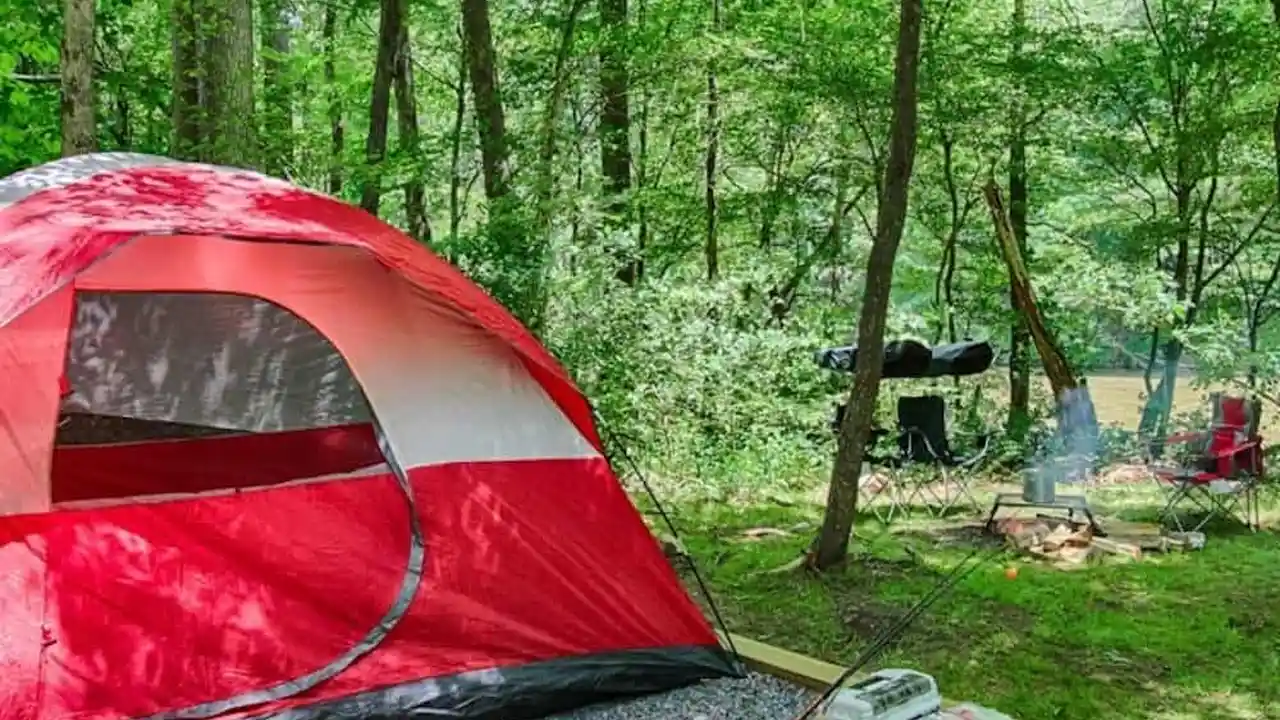Sustainable Travel Practices for Adventurers
Travel responsibly and minimize your environmental impact with sustainable travel practices. We share tips on reducing waste, supporting local businesses, and respecting local cultures. Be a conscious and responsible traveler.

Understanding Sustainable Travel What Is It
Okay, let's dive into sustainable travel. What exactly *is* it? Basically, it's all about traveling in a way that minimizes your negative impact on the environment and local communities, while maximizing the positive ones. Think about it: you're visiting these incredible places, you want to make sure they stay incredible for future generations, right? That's the heart of sustainable travel.
It's not just about recycling your water bottle (though that helps!). It's a holistic approach that considers everything from your transportation choices to where you stay, what you eat, and how you interact with the local culture. It's about being mindful and making conscious decisions that benefit both the planet and the people you're visiting.
Reducing Your Carbon Footprint Transportation Tips
One of the biggest contributors to your travel carbon footprint is transportation. Flying, especially long-haul flights, releases a ton of greenhouse gases. So, what can you do? First, consider flying less. If possible, opt for train travel or bus rides, especially for shorter distances. These are often more scenic and allow you to experience the journey in a more immersive way.
When you *do* have to fly, look for airlines that are actively working to reduce their carbon emissions. Some airlines invest in carbon offsetting programs, where they fund projects that reduce greenhouse gases to compensate for their flights. You can also choose direct flights whenever possible, as takeoffs and landings are the most fuel-intensive parts of a flight.
Once you arrive at your destination, prioritize walking, cycling, or using public transportation. Many cities have excellent public transportation systems that are both affordable and environmentally friendly. Renting a bike is a great way to explore at your own pace while getting some exercise. And of course, walking is the best way to truly immerse yourself in the local atmosphere.
Eco-Friendly Accommodations Choosing Green Hotels and Lodges
Where you stay can also make a big difference. Look for accommodations that are committed to sustainability. These might be eco-lodges, green hotels, or even locally owned guesthouses that prioritize environmental responsibility.
What should you look for? Check if the accommodation has implemented energy-saving measures, such as using solar power, LED lighting, and energy-efficient appliances. Do they have water conservation programs, like low-flow showerheads and toilets? Do they recycle and compost? Do they source their food locally? These are all signs of a commitment to sustainability.
Websites like Green Key and Sustainable Travel International offer certifications and resources to help you find eco-friendly accommodations. Also, reading reviews from other travelers can give you insights into a hotel's sustainability practices.
Supporting Local Businesses and Communities Fair Trade and Ethical Shopping
One of the best ways to support local communities is to spend your money at locally owned businesses. Instead of staying at big chain hotels, consider guesthouses or family-run hotels. Instead of eating at international fast-food chains, try local restaurants and street food stalls.
When shopping for souvenirs, look for fair trade products. Fair trade ensures that artisans and producers receive fair wages and work in safe conditions. Look for the Fairtrade label or ask the seller about the origin of the product and how it was made. Buying directly from artisans is a great way to support their livelihoods and learn about their craft.
Be mindful of the impact your purchases have on the local environment. Avoid buying products made from endangered species or unsustainable materials. Opt for locally made products that are crafted from natural, renewable resources.
Reducing Waste and Plastic Consumption Packing Tips for Zero Waste Travel
Plastic waste is a major environmental problem, especially in tourist destinations. One of the easiest ways to reduce your impact is to bring your own reusable water bottle and refill it whenever possible. Many airports and public places have water fountains where you can fill up for free.
Pack a reusable shopping bag to avoid using plastic bags at stores and markets. Bring your own reusable coffee cup or travel mug for coffee and tea. Consider packing a set of reusable utensils and a reusable food container for picnics and takeaway meals.
When buying toiletries, opt for solid versions instead of liquids. Solid shampoo, conditioner, and soap bars reduce plastic packaging and are also easier to travel with. Look for refillable containers for your toiletries to further reduce waste.
Consider a product like the Lush Shampoo Bar ($12). It's a solid shampoo that lasts for ages and comes with minimal packaging. Perfect for reducing plastic waste. Another great option is the Hydro Flask Water Bottle ($30-45 depending on size). It's durable, keeps your water cold, and eliminates the need for single-use plastic bottles. If you're looking for a complete zero-waste travel kit, check out the Package Free Shop Travel Kit ($50). It includes everything you need to minimize waste on the go, from bamboo cutlery to reusable snack bags.
Respecting Local Cultures and Customs Cultural Sensitivity and Responsible Tourism
Before you travel to a new destination, take the time to learn about the local culture and customs. This will help you avoid accidentally offending people and show respect for their traditions.
Dress modestly, especially when visiting religious sites. Avoid public displays of affection that may be considered inappropriate. Ask for permission before taking photos of people. Learn a few basic phrases in the local language to show your interest and respect.
Be mindful of your behavior and avoid loud or disruptive behavior that could disturb the peace. Respect local laws and regulations. Avoid participating in activities that exploit people or animals. For example, avoid riding elephants or visiting animal shows that may involve mistreatment.
Engage with local communities in a meaningful way. Take a cooking class to learn about local cuisine. Visit a local market to sample regional specialties. Attend a cultural performance to experience traditional music and dance. These experiences will enrich your travels and help you connect with the local culture on a deeper level.
Choosing Ethical Tour Operators and Activities Animal Welfare and Conservation
When booking tours and activities, choose ethical operators that prioritize animal welfare and conservation. Avoid tours that exploit animals for entertainment, such as elephant riding or tiger selfies. Look for tours that support wildlife conservation and habitat preservation.
If you're interested in wildlife viewing, choose reputable operators that follow ethical guidelines. Look for tours that prioritize the well-being of the animals and minimize disturbance to their natural habitat. Avoid tours that involve feeding or interacting with wild animals, as this can disrupt their natural behavior and make them dependent on humans.
Support conservation efforts by visiting national parks and wildlife reserves. Pay entrance fees and follow the park's rules and regulations. Consider donating to conservation organizations that are working to protect endangered species and their habitats.
Sustainable Food Choices Eating Local and Reducing Food Waste
Food is a big part of travel, and making sustainable food choices can have a positive impact on the environment and local communities. Eat at local restaurants and street food stalls to support local farmers and producers. Try regional specialties and learn about the local cuisine.
Reduce food waste by ordering only what you can eat. Avoid buffet-style meals, which often lead to food waste. If you have leftovers, ask if you can take them with you. Compost food scraps whenever possible.
Consider reducing your meat consumption. Meat production has a significant environmental impact, contributing to greenhouse gas emissions and deforestation. Try vegetarian or vegan options to reduce your carbon footprint.
Offsetting Your Carbon Footprint Carbon Offsetting Programs and Initiatives
Even if you take all the above steps, your travel will still likely have some environmental impact. One way to mitigate this impact is to offset your carbon footprint. Carbon offsetting programs invest in projects that reduce greenhouse gas emissions, such as renewable energy projects, reforestation initiatives, and energy efficiency programs.
There are many carbon offsetting programs available online. Do your research to find a reputable program that invests in projects that align with your values. Some airlines offer carbon offsetting options when you book your flight. You can also calculate your carbon footprint using online calculators and purchase carbon offsets accordingly.
Examples of Sustainable Adventures and Destinations
Okay, so where can you actually *go* for a truly sustainable adventure? Plenty of places are making strides in eco-tourism. Costa Rica, for example, is a pioneer in ecotourism. With its lush rainforests, stunning beaches, and commitment to conservation, it's a paradise for nature lovers. You can stay in eco-lodges, hike through national parks, and observe wildlife in their natural habitat.
Bhutan is another great example. This small Himalayan kingdom prioritizes Gross National Happiness over Gross Domestic Product and has a strong commitment to environmental conservation. It limits the number of tourists allowed into the country and requires them to pay a daily fee that goes towards sustainable development projects.
In Southeast Asia, consider visiting places like Chiang Mai, Thailand, where you can find ethical elephant sanctuaries that prioritize the well-being of the animals. Or explore the rice terraces of Sapa, Vietnam, while staying in locally owned homestays that support the local community.
:max_bytes(150000):strip_icc()/277019-baked-pork-chops-with-cream-of-mushroom-soup-DDMFS-beauty-4x3-BG-7505-5762b731cf30447d9cbbbbbf387beafa.jpg)






